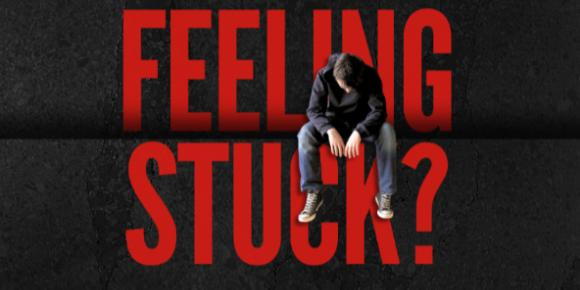
In today's fast-paced world, many of us are constantly on the go, juggling multiple responsibilities—whether it's work, personal life, or social commitments. It's easy to fall into the trap of overextending ourselves, which can lead to burnout. Burnout is not just feeling tired or stressed out from a tough day; it’s a state of emotional, physical, and mental exhaustion caused by excessive and prolonged stress. The longer it persists, the more it affects every aspect of our lives. Fortunately, therapy can offer powerful tools for addressing burnout and reclaiming balance.
What is Burnout?
Burnout is characterized by a combination of emotional exhaustion, detachment, and a diminished sense of personal accomplishment. It often occurs when we push ourselves too hard for too long without adequate rest or support. While burnout is commonly associated with work, it can also affect people who are overwhelmed by caregiving, academics, or even social pressures.
Common symptoms of burnout include:
- Chronic fatigue and lack of energy
- Difficulty concentrating or making decisions
- Feelings of cynicism, detachment, or disillusionment
- Decreased performance and productivity
- Irritability, frustration, or emotional numbness
- Physical symptoms such as headaches, digestive issues, or sleep disturbances
Left unchecked, burnout can have serious consequences for your mental health, leading to anxiety, depression, and even physical illness.
The Benefits of Therapy for Burnout
When burnout takes over, therapy can be a valuable lifeline. Here are some of the key ways therapy can help you recover and build resilience against future burnout:
1. Identifying Root Causes
One of the first steps in therapy is understanding what led to your burnout in the first place. Was it a demanding job, lack of boundaries, perfectionism, or difficulty saying no? A therapist can help you pinpoint the underlying causes so you can make meaningful changes in your life.
2. Creating Boundaries
Many people who experience burnout struggle with setting boundaries, whether it’s at work, with family, or even with themselves. Therapy can help you learn how to say no, delegate tasks, and protect your time without guilt. Establishing healthy boundaries is essential to prevent burnout from recurring.
3. Stress Management Techniques
Therapists can teach a variety of stress management techniques, such as mindfulness, cognitive-behavioral strategies, and relaxation exercises. These tools help you cope with stress more effectively, reducing its impact on your physical and emotional well-being. Over time, you'll build a more sustainable relationship with stress.
4. Developing Emotional Awareness
Burnout can often leave people feeling emotionally numb or overwhelmed. Therapy provides a safe space to process those emotions and develop greater emotional awareness. By identifying your feelings and their triggers, you can learn how to respond to stress in healthier ways.
5. Fostering Self-Compassion
Many people struggling with burnout are highly self-critical. They may feel guilty for not doing enough or for needing time to rest. Therapy helps cultivate self-compassion, teaching you to be kinder to yourself and accept that it's okay to take a step back when needed.
6. Rebuilding Motivation and Joy
One of the hallmark symptoms of burnout is a lack of motivation or passion. Therapy can help you rediscover the activities, values, and relationships that bring you joy and purpose. Over time, this renewed sense of fulfillment can replace the feelings of disillusionment that burnout leaves in its wake.
7. Preventing Future Burnout
Finally, therapy doesn’t just help you recover from burnout; it equips you with the skills to prevent it from happening again. By addressing your time management, coping strategies, and emotional resilience, therapy helps you build a more balanced and fulfilling life.
Types of Therapy that Can Help with Burnout
Several therapeutic approaches are particularly effective for treating burnout:
Cognitive Behavioral Therapy (CBT): Helps individuals recognize negative thought patterns that contribute to stress and burnout. It focuses on changing how you respond to stressful situations and building healthier coping mechanisms.
Mindfulness-Based Stress Reduction (MBSR): This approach uses mindfulness meditation and breathing exercises to help you stay grounded, manage stress, and improve emotional regulation.
Solution-Focused Therapy: A goal-oriented therapy that focuses on practical steps you can take to address burnout. This approach helps you set realistic goals and find immediate solutions to ease your symptoms.
Person-Centered Therapy: Offers a supportive and nonjudgmental space where you can explore your feelings and experiences, allowing you to better understand your burnout and find personal growth.
Conclusion: Therapy as a Path to Recovery
Burnout is a serious condition that can take a heavy toll on your physical and mental health, but you don’t have to navigate it alone. Therapy offers a proven way to not only recover from burnout but to build resilience and lead a more balanced, fulfilling life. Whether you’re struggling with emotional exhaustion, stress, or the loss of motivation, therapy can provide the tools you need to reclaim your energy and find joy again.
If you’re feeling the weight of burnout, seeking therapy might be the first step toward feeling better.
